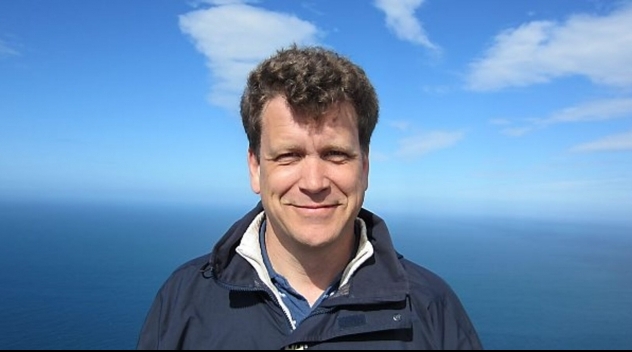Björn Wettermark creates tools for optimised drug utilisation
The path of the drug from laboratory to patient is long and every year non-optimised medication use costs both human lives and astronomical amounts. Now, Björn Wettermark, Professor of Pharmacoepidemiology, is forming the multidisciplinary clusters than can help turn the tide.
The development of increasingly sophisticated medicines is constantly improving healthcare's possibilities to help people live longer and healthier lives. In parallel, studies show that half of all patients do not take their medication as instructed, a non-optimised use that causes both unnecessary suffering and great economic challenges. Facing this problem, the Faculty of Pharmacy is now strengthening its research environment for improved drug use in society. A central recruitment is Björn Wettermark, Professor of Pharmacoepidemiology and Pharmacist of the Year 2013.
“A drug only provides the intended effect when used correctly, but accomplishing this is one of healthcare's oldest and biggest challenges. In Sweden, we have a strong tradition in drug development, but have paid significantly less attention to what happens once the pill is produced. In Uppsala, we have all the competencies needed to map and strengthen the entire chain, from laboratory to final phasing out, and when the Faculty of Pharmacy offered me to be part of this work, it was a straightforward decision,” says Björn Wettermark.
Lack of quality in drug utilisation has consequences at all levels: Register data show increased mortality among a number of patient groups. In healthcare, almost every tenth hospitalisation is caused by non-optimised medication use. Some researchers calculate that the same amount we spend on drugs we have to spend again to cover society's expenses for misuse. In Europe alone, medication non-adherence is estimated to cost 200,000 lives and € 100 billion a year, and recently experts from 39 countries joined forces in ENABLE, an EU-funded initiative to reverse the trend.
“Methods and technical devices for increased adherence are being developed all over the world. What we need now is collaboration, quality assurance and to share what really works. ENABLE unites European academia, healthcare and industry in order to identify the scope of the challenge, create searchable libraries, establish expertise centers and contribute to effective implementations in the national healthcare systems. The work has got off to a quick start and we have already completed a comparative study of the conditions for primary care and pharmacies in different European countries to provide patients with effective drug treatments during the ongoing pandemic,” states Björn Wettermark.
The reach of the coronavirus has led to an increased interest in the epidemiological sciences. Björn Wettermark mentions how calls are growing in both frequency and amounts, as well as the increasing number of students applying for educations within the field. The discipline cover a wide range of societal challenges, and in parallel with his involvement in ENABLE, Björn is currently preparing a Nordic collaboration on covid-19, as well as the new course Drugs in the environment: a part of the government's investments in lifelong learning, where he will engage his national network with key actors in both regions, authorities, the pharmaceutical industry and pharmacy chains.
“Sweden basically offers ideal opportunities for pharmacoepidemiological research, not least our national health data and quality registers that follow the population from the cradle to the grave. Unfortunately, we have built an infrastructure where the information is managed by a number of different principals, which has hampered the exchange. Here, Uppsala University is an arena where multidisciplinary research, profession, decision-makers and students can unite around important challenges, and now we gather the skills and create the conditions needed to achieve success.”
Magnus Alsne
Facts
- Pharmacoepidemiology puts focus on the use of drugs and its effects in the population and society.
- Drug in the environment (7.5 credits) is a new course in a field that encompasses both ecosystems and health. The course is given September 30 – October 31. Apply from March 15, 2021.
- ENABLE – European network to advance best practices & technology on medication adherence – is a network of researchers, clinicians and industry partners from 39 countries with funding from EU's Horizon 2020 program.

